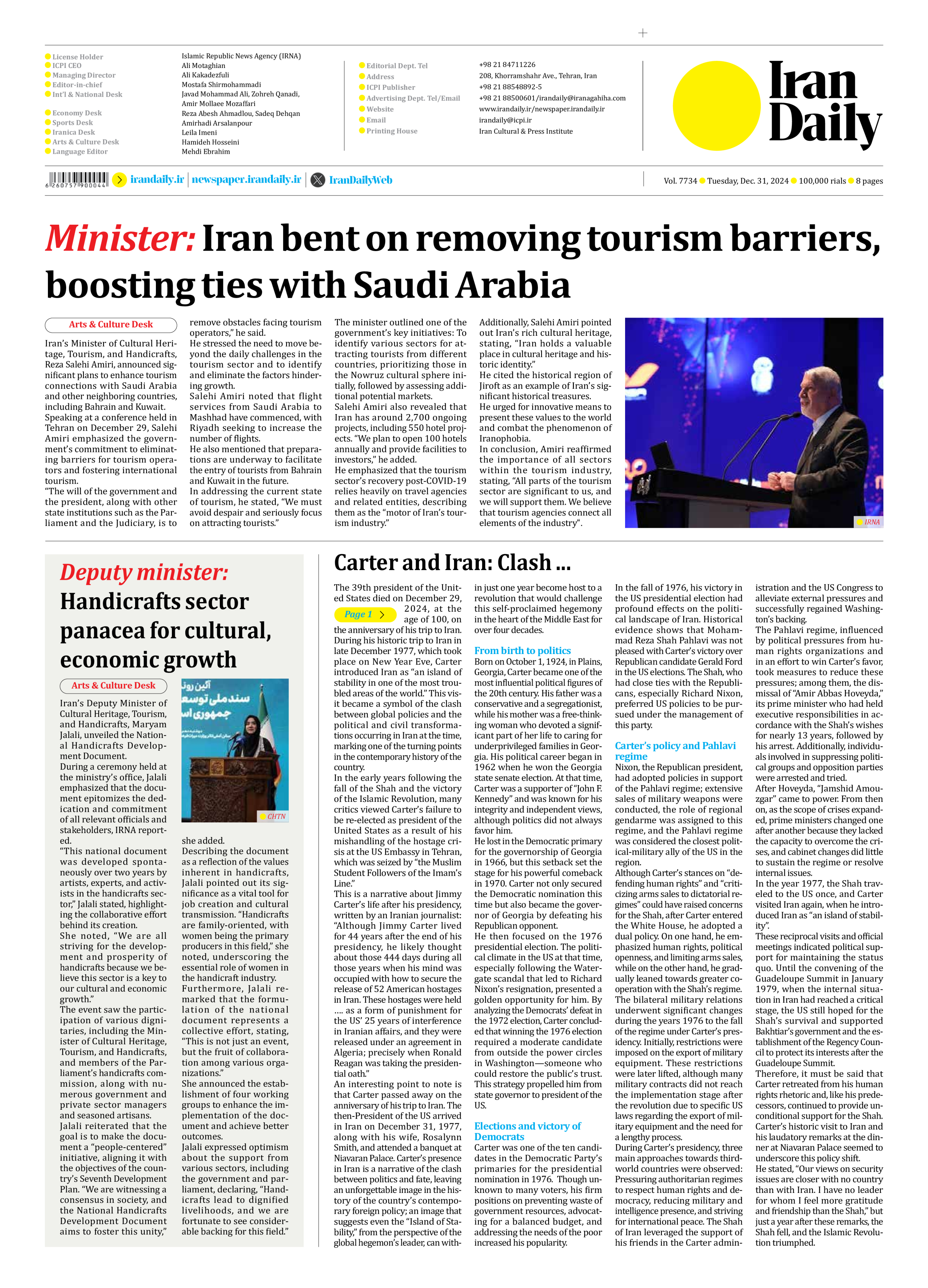
Deputy minister: Handicrafts sector panacea for cultural, economic growth
Iran’s Deputy Minister of Cultural Heritage, Tourism, and Handicrafts, Maryam Jalali, unveiled the National Handicrafts Development Document.
During a ceremony held at the ministry’s office, Jalali emphasized that the document epitomizes the dedication and commitment of all relevant officials and stakeholders, IRNA reported.
“This national document was developed spontaneously over two years by artists, experts, and activists in the handicrafts sector,” Jalali stated, highlighting the collaborative effort behind its creation.
She noted, “We are all striving for the development and prosperity of handicrafts because we believe this sector is a key to our cultural and economic growth.”
The event saw the participation of various dignitaries, including the Minister of Cultural Heritage, Tourism, and Handicrafts, and members of the Parliament’s handicrafts commission, along with numerous government and private sector managers and seasoned artisans.
Jalali reiterated that the goal is to make the document a “people-centered” initiative, aligning it with the objectives of the country’s Seventh Development Plan. “We are witnessing a consensus in society, and the National Handicrafts Development Document aims to foster this unity,” she added.
Describing the document as a reflection of the values inherent in handicrafts, Jalali pointed out its significance as a vital tool for job creation and cultural transmission. “Handicrafts are family-oriented, with women being the primary producers in this field,” she noted, underscoring the essential role of women in the handicraft industry.
Furthermore, Jalali remarked that the formulation of the national document represents a collective effort, stating, “This is not just an event, but the fruit of collaboration among various organizations.”
She announced the establishment of four working groups to enhance the implementation of the document and achieve better outcomes.
Jalali expressed optimism about the support from various sectors, including the government and parliament, declaring, “Handicrafts lead to dignified livelihoods, and we are fortunate to see considerable backing for this field.”







